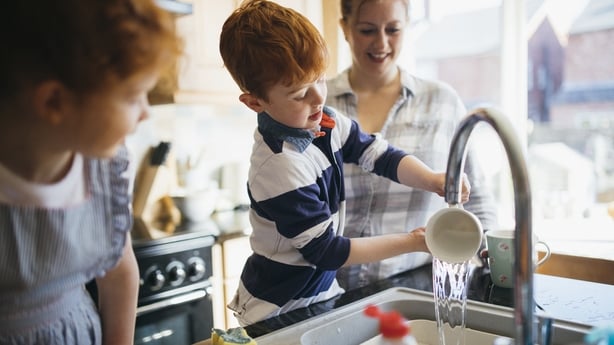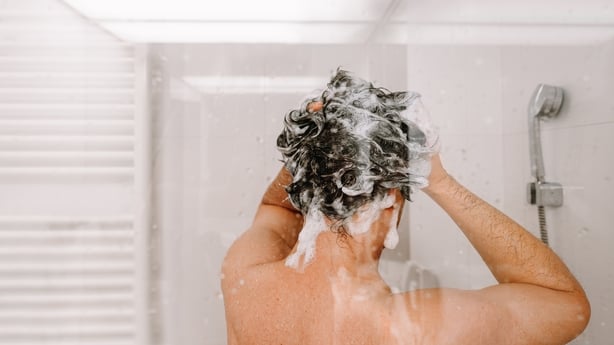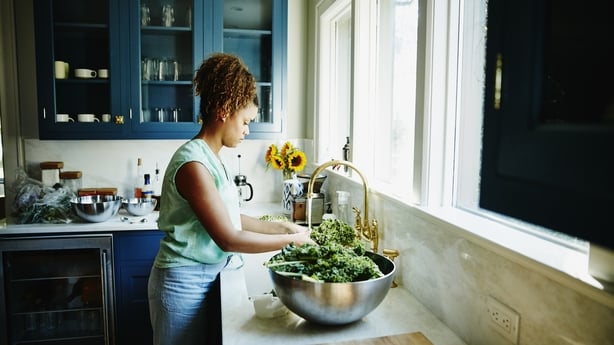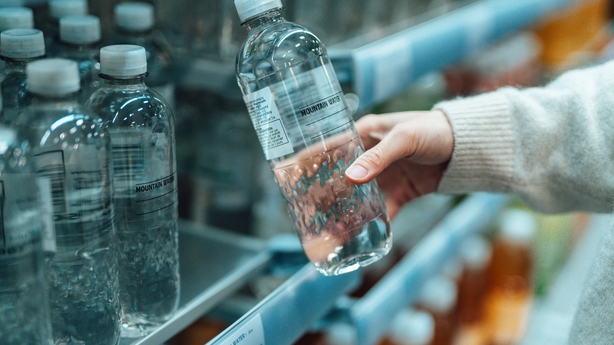What Planet Are You On?'s Prof Fiona Regan, Professor in Chemistry at Dublin City University and Director of the DCU Water Institute, explains why we shouldn't waste water in our homes, and how we can make small changes to conserve this precious resource.
There are now more frequent severe weather events leading to flooding and water shortages. As the climate activists say, "There is no Planet B".
The climate crisis is a water crisis.
Water is the most precious commodity in the world, but it is not the most valued. We are wasting water. All of us, everywhere on the planet. In Ireland we might live in a wet climate, but our management of this invaluable resource needs to be improved – urgently – because too much of it runs down the drain. Every household needs to transform its water use for the sake of our children. Let's call this family project Water Island.

In What Planet Are You On?, we meet three very different families, learning about their water consumption, and setting them targets to improve their water use behaviour.
According to reports on gathered data Irish people use on average 120-130 litres of water per person per day. This is lower than the EU average, but still higher than the level of 100 litres per person per day that we would like to see because our resources are struggling to meet demand. We are asking everyone to try and use only what they need.
Irish households use too much water. Or do they?
In a typical home, almost 50% of all the water you use indoors is in the bathroom. This makes it a great place to start saving water. Toilet flushing, showering and bathing and teeth brushing are the everyday things we use water for in the bathroom.

The shower:
Taking a 20-minute shower sounds like a really long time. In our assessment of our families, we find that lengthy shower times are the norm. Reports suggest that 10 minutes and no longer, is good for our health. Shorter, cooler showers are generally better for your skin. Overusing soap or showering in hot water can negatively impact your skin and hair.
We are asking our families to think about reducing showers to under five minutes. An average shower uses about 10 litres of water per minute. Showers are responsible for 30% of our water use. Some showers can use a lot of water, particularly power showers. A very simple shower timer can be used to help reduce the time you spend in the shower. Taking shorter showers is one of the best ways to help save water.
Much of the energy use comes from heating the water. By cutting your shower time to five minutes you’ve just prevented 310kg of CO2e from entering the atmosphere. Remember your shower should take no longer than the duration of your favourite song – or five minutes whichever is shorter.
Hopefully it’s not "Stairway to Heaven’!
The loo:
There are a number of affordable and easy-to-use water saving devices that can help save water in homes. Some might choose to use a toilet cistern bag. This is a device that fits in the water cistern of your toilet and is filled with water which causes it to expand and displace volume in the tank. This means that every time you flush the toilet, less water is used.
Some toilets are fitted with dual flushing systems. This gives people the option to use a smaller amount or volume of water per flush instead of the full flush volume all the time, in order to save water. Most modern toilets are fitted with a dual flush system, but they can also be retrofitted to existing systems.

The sink:
A running tap uses six litres of water per minute. By turning the tap off while brushing your teeth you can save 0.7 kg CO2e per year.
It is always better to place a basin in the sink or plug the sink and wash all the dishes together and then rinse. Rinse water could even be used to water plants. By keeping a jug of tap water in the fridge, a cool drink is at hand rather than running the tap until the water reaches the temperature you like. This could save up to 10 litres of water per day.
Use a filter jug if you prefer, and if you like it fizzy - you can get yourself an easy to use carbonation system.
Remember too that it is better to run the washing machine and dishwasher with full loads and save both water and energy.

Bottled water:
Many people buy bottled water because they are not keen on drinking the water from their tap for a variety of reasons. What they don’t realise is that many of the bottled waters have gone through a similar treatment process as our tap water.
So why are we buying it in bottles – adding to our waste and probably exposing ourselves to leaching chemicals from the plastic. The technology and energy involved in providing good quality water to the tap means that we need to encourage people to get "back to tap".
There is nothing like a nice cool glass of water from the tap when you need it.
Summing up:
I am asking people to make four pledges that can help reduce greenhouse gas emissions related to water use and save you money.
1. Shower time: I pledge to reduce my shower times to 5 mins or under.
2. Toilet flush volume: I pledge to use the toilet half- flush rather than the full-flush (or put flush bag in cistern)
3. Washing dishes: I pledge to stop washing dishes by hand & use a filled dishwasher
4. Running water while brushing teeth: I pledge not to let the tap run when I'm brushing my teeth
Watch the brand-new series of What Planet Are You On? with presenter Maia Dunphy on RTÉ One this Tuesday to Thursday at 7pm.


